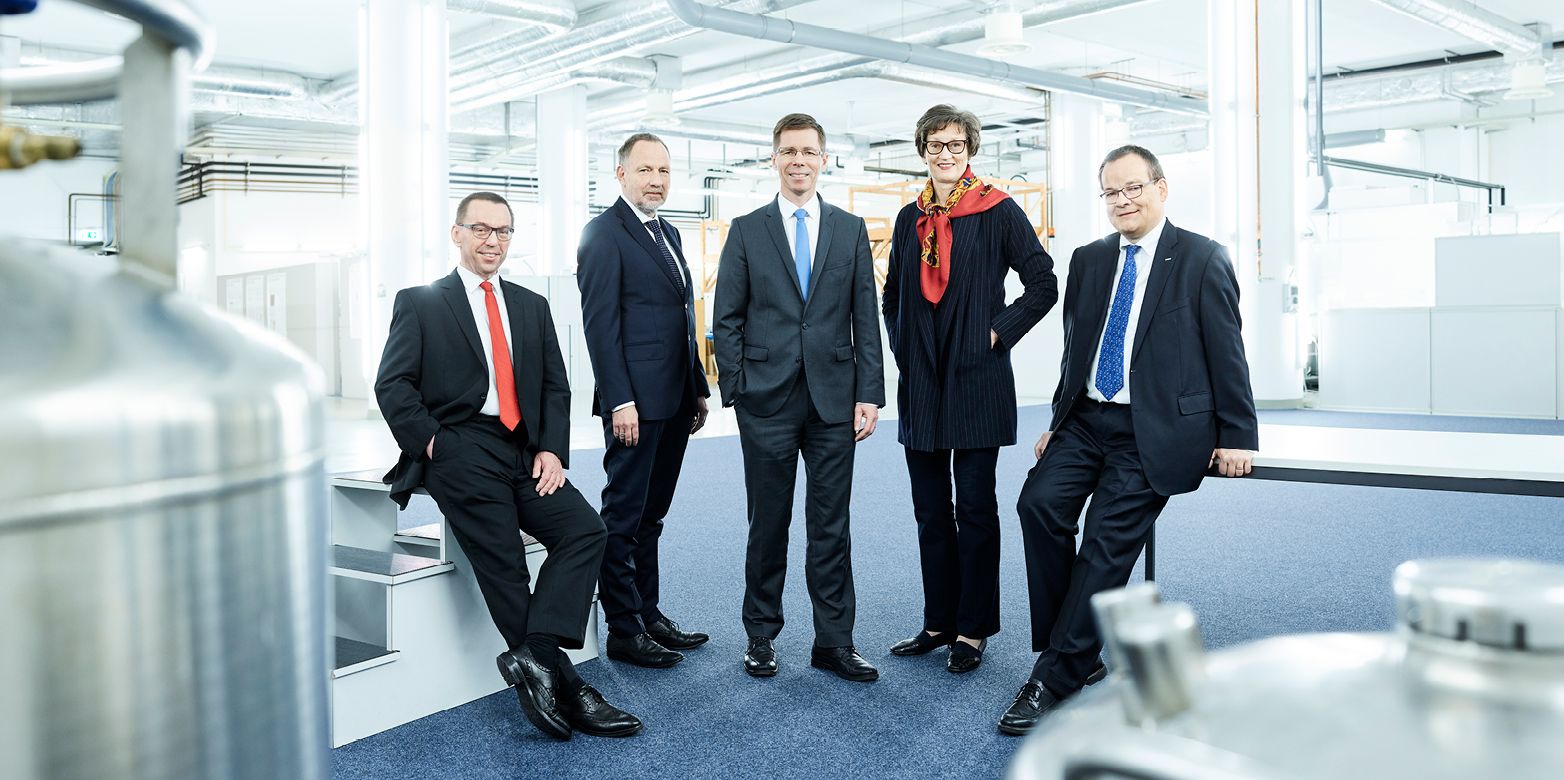Executive Board update 2020 / 3
ETH Zurich has appointed a new delegate for medicine and a new external ombudsman; it is also getting a new unique NMR spectrometer for nationwide use.

Medicine is one of the main focus areas of ETH Zurich. To further strengthen this area, as well as to promote and coordinate the various health initiatives, the Executive Board has appointed Christian Wolfrum (D-HEST) as the new Delegate for Medicine. The Professor for Translational Nutritional Biology reports to the Vice President for Research and took up his new role on 1 June 2020. In his function as Director of Studies for BSc Health Sciences at ETH Zurich he will continue to work closely with the Rector. An in-depth interview with Christian Wolfrum will appear soon.
New external ombudsperson
Since 1 May 2020, ETH Zurich has not only had two internal ombudspersons, but a new external and independent ombudsperson: the lawyer and mediator Kathrin Teuscher has been appointed to this position for a two-year term.
"We are delighted to follow the University Assembly's recommendation: Kathrin Teuscher is the ideal independent specialist whom ETH employees can contact to discuss work-related issues." (Ulrich Weidmann, Acting Vice President for Personnel Development and Leadership)
The new external ombudsman complements the existing internals, Gerhard Tröster and Peter Frischknecht. The third internal ombudsperson, Margrith Leuthold, is working at the Singapore ETH Center (SEC) until the end of 2020 and will resume her post at the start of 2021. All ETH ombudspersons are available to answer questions and give advice to ETH members. They are bound to confidentiality and anonymity and do not share any information with internal university bodies. If required, the ombudspersons can also call on other external experts, for legal issues or psychological matters, for example. ETH has made this appointment in response to the concerns raised by the internal review and the Swiss Federal Audit Office's recommendation for the appointment of an external contact person. Since November 2019 there is now also an External Advice Centre for bullying, harassment and discrimination. The ETH ombudsperson's current annual report can be viewed here (German only).
Skintegrity: a new Open-ETH project
"Skintegrity" is a flagship project that has been run by the interdisciplinary partnership University Medicine Zurich since 2016. A total of 26 groups from the University of Zurich, ETH Zurich and Zurich's four university hospitals are exploring innovative diagnostic methods and therapies for treating serious skin defects and diseases, as well as wound-healing disorders. To ensure the future of this successful project, the ETH Executive Board has decided to provide Skintegrity with additional funding of six million Swiss francs over the next four years. Skintegrity is being run as part of Open-ETH (formerly ETH+).
Center for Learning Systems to continue its work
The Max Planck Society (MPS) and ETH Zurich set up the Center for Learning Systems (CLS) back in 2015. At the close of the initial financing period, CLS was successfully assessed. The Center includes 32 professors from five ETH departments (INFK, ITET, MATH, MAVT and HEST) and 16 MPS directors. Headed by Co-Directors Thomas Hofmann (ETH, D-INFK) and Bernhard Schölkopf (MPS), CLS is engaged in cutting-edge research in the area of artificial intelligence (AI). The ETH Executive Board has now decided to continue the funding for the successful programme up to 2025, extend its Fellowship programme and strengthen collaboration across Europe.
New opportunities for learning languages
A new agreement puts the collaboration with our partners University of Education Zurich (PHZH) and Zurich University of the Arts (ZHdK) for the joint external page Language Center of UZH and ETH Zurich on a new footing. The old agreement was made in 2007, but since then the prices for language courses have never been adjusted. The new agreement has resulted in updated course fees for external partners which will cover operating costs in future. A language course of two hours a week, for example, now costs CHF 486. On the other hand, students and now also employees of PHZH and ZHdK are able to choose from the entire range of courses offered by the Language Center. These changes have had to be incorporated in the Center's statutes. In addition, these partner universities can, like ETH and UZH, benefit from tailor-made courses for individual groups.
High-performance NMR spectrometer for Zurich and Basel
The universities of Basel, Zurich and ETH are getting a new shared technology platform. The Swiss National Ultrahigh-Field Solution NMR Facility incorporates a 1.2 gigahertz spectrometer in Zurich on the Irchel site, as well as one of these ultramodern devices (0.8 gigahertz) in a building at the University of Basel. The overall costs come to 16.5 million Swiss francs. The ETH Executive Board has approved a contribution with a cost ceiling of 6 million francs and in return will be allocated a third of the measurement time for this unique national high-performance facility. The NMR spectrometer significantly boosts the experimental sensitivity and resolution for the analysis of biomolecules. The smaller device in Basel provides a valuable addition to the D-BSSE infrastructure. Two industrial companies are also sharing the costs and will be allocated usage time in return.